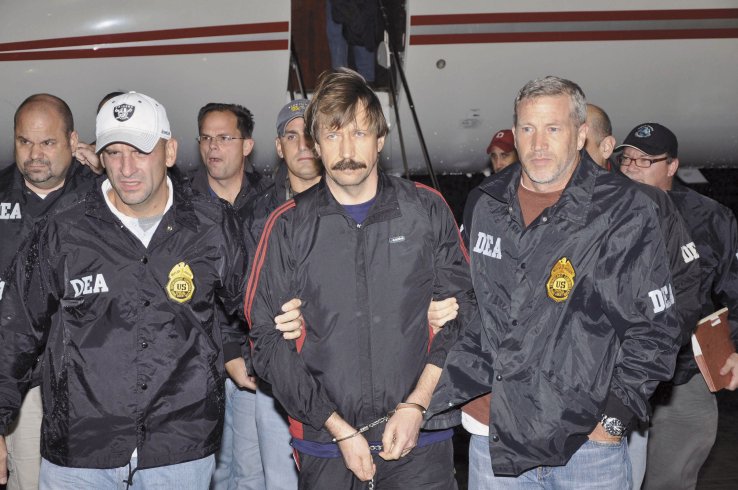

Jane's Intelligence Weekly, Date Posted: 03-Nov-2011

Russian arms trafficker Viktor Bout was convicted in the United States on 2 November of attempting to supply a terrorist organisation with illegal weapons.
The jury found that Bout had conspired to sell 100 Russian Igla surface-to-air missiles, 20,000 assault rifles and 10 million rounds of ammunition to insurgent group the Revolutionary Armed Forces of Colombia (FARC). Bout was arrested in Thailand on 6 March 2008 while trying to set up this deal. However, the presumed FARC buyers who attended the string of meetings held in Curaçao, Copenhagen and Bucharest to arrange the deal were actually undercover agents from the US Drug Enforcement Administration (DEA).
Bout had long been known by government and intelligence agencies to be one of the world's leading arms traffickers, supplying weapons to rebels in countries such as Afghanistan, Angola, Liberia and Sierra Leone, with his large fleet of aircraft, largely ex-Soviet, operating out of airports in Africa, Belgium and the United Arab Emirates. Although Interpol issued a red alert for Bout in 2002 on Belgian charges of money laundering, no legal charges were upheld. There was some concern that the 2008 charges might not even come to trial, given the lengthy extradition procedure required to extradite Bout from Thailand to the US. In part, this was due to pressure on Thailand from Russia, with Russian authorities arguing that Bout, as a Russian national, should be extradited to his country of origin to stand trial. In November 2010, however, Bout was finally extradited to the US, with Russia claiming that the Thai decision was the result of US pressure.
Bout's conviction marks a substantial achievement for law enforcement, after nearly two decades in which he was able to operate without major disruption to his networks. However, while his arrest in 2008 is likely to have broken up much of his network, it has not provided long-term disruption to the global illegal arms market. Indeed, the vacuum created by his arrest is likely to have attracted new entrants to the market, particularly with the new illegal arms markets opening up in Libya and potentially Syria.
FORECAST
What appears to be significant about the new generation of arms traffickers is that most appear to operate on a smaller scale than Bout, who at the peak of his career operated a fleet of nearly 100 aircraft. This may mark a trend towards lower-level operations that aim to evade the kind of law enforcement scrutiny that Bout garnered, while at the same time succeeding in meeting the consistent demand from conflict zones around the world.